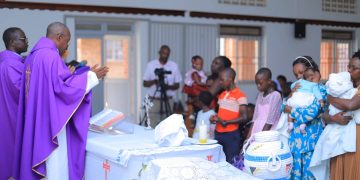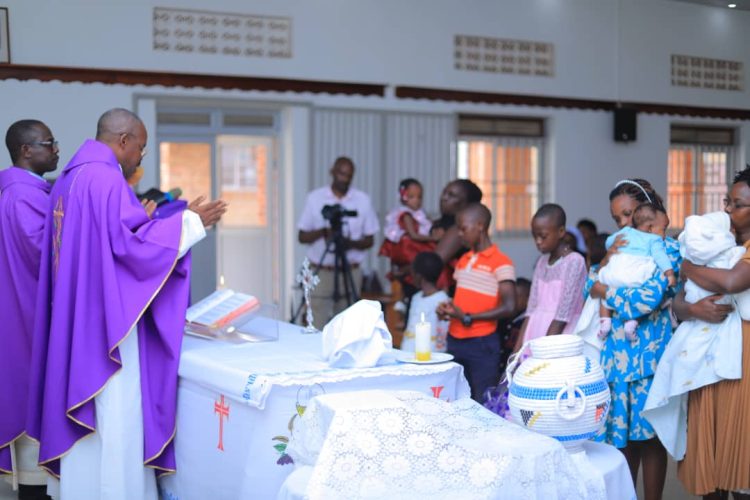By Gilbert Akampa Kakurugu
HEALTH
As the world unites to observe World Prematurity Day (WPD), a spotlight is cast on the rising challenge of neonatal deaths in Uganda. The country ranks 28th globally in preterm births, with 226,000 babies born prematurely each year and 12,500 children under five dying due to direct preterm complications.
This year’s WPD theme, Access to quality care everywhere for every age” underscores the urgent need for universal access to high-quality care for preterm babies, regardless of their birth circumstances or location. Preterm birth remains the leading cause of death for children under five, with survivors often facing lifelong disabilities due to inadequate healthcare. Globally, it is estimated that 13.4 million babies are born prematurely each year.
Uganda’s neonatal mortality rate stands at 22 per 1,000 live births. The goal is to reduce this to 19 by 2025, in line with the National Development Plan III targets, and further to 12 by 2030, to meet the Sustainable Development Goal (SDG) 3.2 targets. Significant investments and the adoption of World Health Organization (WHO) recommendations, such as kangaroo mother care for preterm infants, are critical to achieving these targets. This was revealed by commissioner of Maternal and Child Health in the ministry of health Dr. Mugahi Richard during the world prematurity day and community engagement at Holy innocents children’s hospital in Mbarara on 23rd November, 2024.
Dr. Mugahi also stressed the need for health workers to focus on prevention rather than treatment of such cases. He clarified that a preterm baby is one born before 40 complete weeks, emphasizing conditions health issues like high blood pressure,diabetes, low body temperature and breathing problems among the major causes of newborn and premature deaths.
Mugahi urged the Mbarara Archdiocese to provide airtime to health workers on their reknowned radio Maria to teach mothers about causes of premature births and deaths.

According to the latest Uganda Bureau of Statistics (UBOS) 2022 Uganda Demographic and Health Survey (UDHS), neonatal deaths remain unacceptably high, with significant regional variations. The highest neonatal mortality rate is in West Nile, at 34 deaths per 1,000 live births, while the lowest is in Karamoja, at seven deaths per 1,000 live births. Birth asphyxia, prematurity, and neonatal sepsis are identified as the leading causes of newborn deaths.
Dr. Bisinge Stephen, CEO of Holy Innocents Children’s Hospital, expressed gratitude for the Ministry’s support through Primary Health Care (PHC) and the secondment of staff, which has significantly improved service quality.
However, he noted challenges, including high taxes on hospital equipment and inadequate space for the growing patient numbers. He revealed plans for a new three-story building to accommodate more wards, expected to be completed within five years.
Dr. Mike Kyewalyanga, a paediatrician at Holy Innocents Children’s Hospital, emphasized the importance of health facility readiness. Recommendations include scaling up small and sick newborn care at national and regional referral hospitals, and implementing quality standards for newborn care and infection prevention. “This has been our strength at Holy Innocents,” noted Kyewalyanga.
City Health Officer Longino Mugisha highlighted the importance of antenatal services and called upon the Catholic Church to collaborate with the Ministry of Health to elevate Nyamitanga Health Centre II to a health centre III to better serve the Nyamitanga community and help decongest Mbarara Regional Referral Hospital (MRRH).
The Assistant District Health Officer (ADHO) of Mbarara emphasized the crucial role of husbands in supporting their wives to prevent premature births.
While Kyomugisha Evelyn, ADHO of Isingiro, pointed out the misuse of Misoprostol in clinics as a leading cause of premature births, leading to frequent emergencies requiring neonate transfers from rural areas.
Dr. Mughenyi Godfrey the CEO at Divine Mercy Hospital in Mbarara who reprinted the Ankole Local Maternity and Neonatal Services tasked government to deal with Traditional Birth attendants for they have done a great job in misleading mothers. He noted that very many mothers who are rushed in hospitals in critical conditions are always from the TBA’s.
As we celebrate World Prematurity Day, the need for preventive measures, community support, and healthcare improvements remains paramount. The combined efforts of health workers, community leaders, and the public are crucial in addressing these pressing health issues and ensuring a healthier future for all.








































